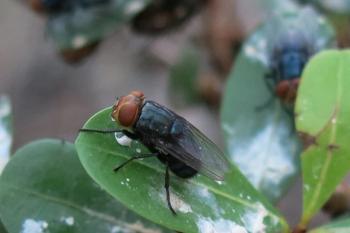
New AAEP president rallies support for education, technology, emerging disease research
Dr. Jerry Black, 1971 DVM graduate of Colorado State University, surmises that the daily planners of the new generation of veterinary graduates do not look like his did 30 years ago. The incoming president and 20-year member of the American Association of Equine Practitioners (AAEP) acknowledges the new generation has "different priorities. "
Dr. Jerry Black, 1971 DVM graduate of Colorado State University, surmisesthat the daily planners of the new generation of veterinary graduates donot look like his did 30 years ago.
The incoming president and 20-year member of the American Associationof Equine Practitioners (AAEP) acknowledges the new generation has "differentpriorities. "
"We want to make sure that AAEP fits the needs of these new membersas they become involved in AAEP, "says Black, who officially assumesthe reins at the 47th AAEP Annual Convention in San Diego this month.
Continuing education
One such need to which Black, owner of the Pioneer Equine Hospital inOakdale, Calif., intends to devote a large portion of his term is continuingeducation undertakings, which he says "build leadership in professionals "- young and old.
AAEP is soundly involved in training and continuing education throughinternship and externship programs, Black explains.
"It is a primary goal of our strategic plan that we will be theirprimary resource for professional education and involvement. We will notalter from that course, "Black says.
New graduates, especially, deserve the latest in practice managementand personal financial management material, he says.
"The norm will not be for equine veterinarians to work 80 hour weeksas past generations have done. There will be life and time management issuesthat are real and the industry needs to understand that. "
After all, Black concedes the calendar date is no longer 1973 - the yearhe ventured to California fresh out of college.
Looking back
Black, who was raised in a farming and ranching community in New Mexico,started the Pioneer Equine Hospital in 1973 along with another partner,who then died five years into Black's career. The hospital has since emergedas a seven-doctor referral center concentrated on clinical orthopedics andsurgery.
Once Black established his practice, he acknowledged something was stillmissing.
"I was interested in participating in the professional end of organizedveterinary medicine from the time I started going to the AAEP conventions, "Black says. "As I became more involved through the committee as a volunteer,it became more important for me to contribute. "
But contributions didn't cease with AAEP.
His resume of contributions includes a host of organizations, includingthe Pacific Coast Cutting Horse Association, AVMA, National Cutting HorseAssociation and California Veterinary Medical Association.
"When you are involved in professional organizations I think yougain experience in leadership, "he says. "And I think it givesyou a little broader perspective on the profession and the industry. "
The industry is not what it used to be, says Black. "It is evolvingfrom a rural-based industry where horses were part of a farm and ranch environmentto a situation where horses are a part of people's everyday life in termsof companions and their hobbies, "says Black.
And the progressive industry he describes is thriving.
Economics
"The practice of equine veterinary medicine has been very solidand growing over the last few years. Even though we're looking at a probableeconomic downturn, I don't think we're going to be positioned any differentlythan the rest of the veterinary profession, "he says.
Yet Black advises veterinarians to be "cognizant "of the roleof economics in daily equine practice.
"We must continue to strive to make sure our economic base of practiceitself will support the veterinarian as a professional. We're in a situationwhere I think there are generations of veterinarians who have worked waytoo many hours and too hard for what they were compensated, "he says.
State of affairs
The equine industry will soon have access to refined technologies availablein human medicine, he predicts.
"I could envision for horses that we're going to have CAT scans,MRIs - those types of technologies that have been difficult for us to havewill become more commonplace. "
Even armed with advanced technologies, veterinarians can expect the stayingpower of emerging diseases, such as the West Nile Virus, he adds.
Yet he says an alignment with organizations such as AVMA, the AmericanHorse Council, and USDA, allows AAEP to serve as a resource for its membershipto remain current on various types of diseases.
In the meantime states should chart a course of action before encounteringa WNV confrontation, Black says.
"We have to say, not 'is it going to reach California?' but we willbe ready for it, if it does reach California, "he says. "We willsupport any research and technology that will aid in preventing the spreadof this disease. "
Newsletter
From exam room tips to practice management insights, get trusted veterinary news delivered straight to your inbox—subscribe to dvm360.






